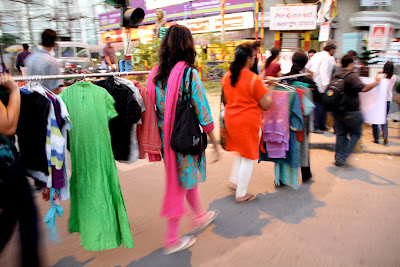“According to the Bangladesh National Women Lawyers Association, almost 90 percent of girls aged 10-18 years are victims of sexual harassment.
The perpetrators range from college students and unemployed youth to street vendors, rickshaw pullers, bus drivers, fellow passengers, colleagues and supervisors.
‘Sexual terrorism thrives on patriarchal attitudes, prejudices, cultural norms, double standards and discriminatory laws that devalue women and deny them their rights. Eradicating it will require transformative social change.'”
Nearly 90 percent of girls starting at age 10 are harassed in public?!?! That is so terrible!!
The article describes many cases where the family members of girls being harassed took matters into their own hands by snatching the harasser or his father and turning him over to the police and even burning a harassers’ home. With 90 percent of young girls being harassed, it’s no wonder people are upset enough to do so! What’s a 10 year old supposed to do against teenagers or grown men harassing her? Outrageous bullying on the men’s part.
The article also notes something I was unaware of – the Bangladeshi government is led by several women and it is because of them that the government declared last Sunday Eve Teasing Protection Day.
“The resolve to raise public awareness comes from the presence of several women in public life. ‘In a country where the prime minister (Sheikh Hasina), foreign minister (Dipu Moni), home minister (Sajeda Khatun), agriculture minister (Motia Chowdhury) and the leader of the opposition (Begum Khaleda Zia) are female, women and girls cannot walk on the streets, use public transport, or go to school, shops, parks or other public places without often being ogled, taunted, harassed, humiliated, sexually molested, groped and assaulted – and in some cases, attacked with acid, abducted and raped.'”
Yay for women leaders.
Given the close proximity of Bangladesh is to India and the overlaps of culture, I wonder if programs similar to those going on in India to educate young boys about gender issues and healthy definitions of masculinity could be useful in curbing the problem of eve teasing in Bangladesh, too.

 1. United Nations: Through UNIFEM the UN has a comprehensive
1. United Nations: Through UNIFEM the UN has a comprehensive 

